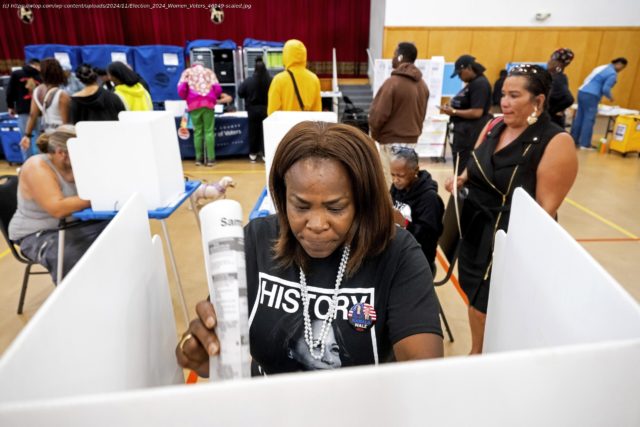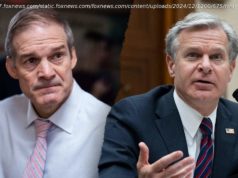Voters had the chance this election to break the highest glass ceiling in American politics by electing Kamala Harris the nation’s first female president.
Voters had the chance this election to break the highest glass ceiling in American politics by electing Kamala Harris the nation’s first female president. Instead, they returned Donald Trump to the White House, a comeback that relied on significant — even somewhat improved – support among women.
Some female voters on Wednesday mourned the missed opportunity to send a woman to the Oval Office and wondered when, if ever, it might happen.
“I am just aghast,” said Precious Brady-Davis, a Black transgender woman who’d just won a two-year term on a Chicago-area water management board — but her joy in that was tempered. “I am disappointed in my fellow Americans that, once again, we did not elect a qualified woman to the presidency.”
Those who supported Trump — like Katherine Mickelson, a 20-year-old college student from Sioux Falls, South Dakota — said the race came down to values and to issues like the economy, not gender. Even Harris herself sought her place in history without dwelling on her gender.
“While I think a lot of women would like to see a female president, myself included,” Mickelson said, “we aren’t just going to blindly vote for a woman.”
Despite the history-making potential of Harris’ campaign, she wasn’t able to expand on President Joe Biden’s 2020 support among women to cement a win, according to AP VoteCast, a sweeping survey of more than 120,000 voters nationwide. Fifty-three percent of women supported Harris, compared with 46% for Trump — slightly narrower than Biden’s advantage among them in 2020.
The prospect of electing the first female president didn’t rank high as a motivator for voters. Only about 1 in 10 voters said the fact that Harris would be the first woman was the single most important factor for their vote, while about one-quarter said it was an important driver, but not the most important.
Denise Martin in Georgia had a grim view: “I really feel like the majority of Americans still aren’t ready for a woman. They are so short-sighted.” That included, she said, some fellow female voters.
Women were more likely than men to say electing the first female president was at least a factor in their vote, VoteCast showed, though few said it was the main driver and about 4 in 10 women said it wasn’t a factor.
Black women were especially motivated by the potential for the first female president — about a third said it was the most important factor.
Maya Davis theorized that Harris’ identity as a Black and South Asian woman “absolutely” played a role in her defeat. As a Black woman herself, the 27-year-old North Carolina attorney said she’s constantly forced to prove herself.
“I don’t think there’s anything she could have done differently unfortunately,” she said of Harris. “Maybe not be a woman.”
Female supporters of Trump, 78 — who adopted a hypermasculine campaign style, used sexist tropes and vowed to protect women “whether they like it or not” — said they found his rhetoric perhaps unfortunate or hyperbolic, but less troubling than concerns about the economy, immigration and abortion.






